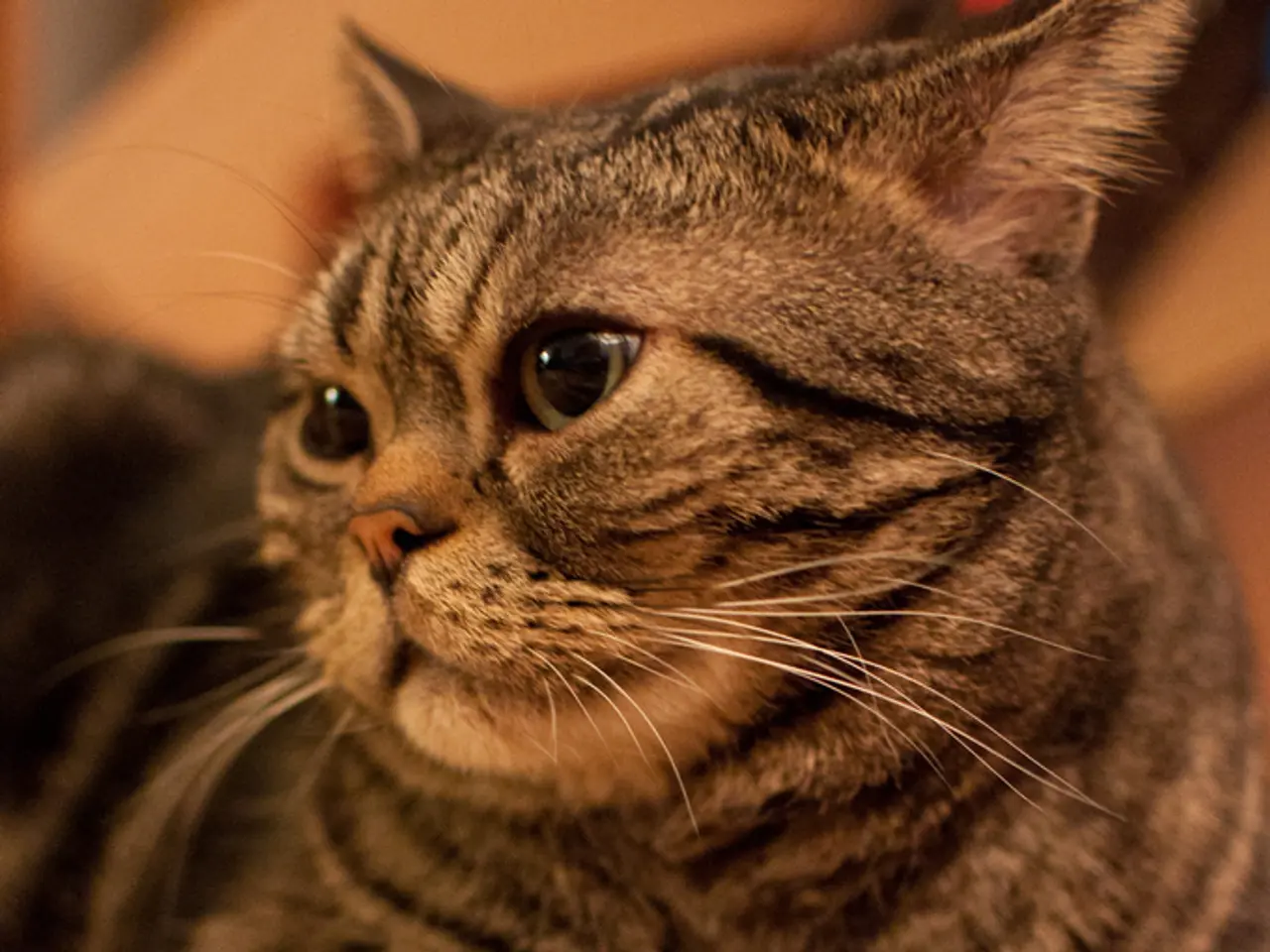Excessive Feline Vocality: Understanding Why Your Cat Keeps Meowing Incessantly
Cats, known for their independent nature, occasionally display a more vocal side, and excessive meowing can be a cause for concern for their owners. Several factors contribute to this behaviour, including medical, behavioural, environmental, and breed-specific reasons.
Medical factors
Illness, pain, or age-related cognitive dysfunction can lead to increased vocalizations, especially if the meowing is new or unusual. If you notice a change in your cat's meowing pattern, it's essential to schedule a veterinary checkup to rule out any potential health issues.
Behavioral factors
Cats meow to communicate their needs, such as hunger, thirst, or a desire for human attention and companionship. Loneliness and separation anxiety are common causes of excessive meowing. To help reduce such behaviour, focus on enrichment, like puzzle feeders, toys, and regular interaction.
Environmental factors
Stressful situations, such as changes in routine, new environments, loud noises, or lack of stimulation, can cause cats to vocalize more. To create a calming environment, consider introducing new items gradually and providing plenty of hiding spots.
Breed-specific factors
Some cat breeds, such as Siamese, Bengals, Sphynx, and Bobtail cats, tend to be more vocal naturally, while others like Maine Coons are quieter. Awareness of your cat's breed can help you better understand their vocal tendencies.
Time of day and breeding season
The time of day affects meowing, with more vocalization often occurring at dawn or dusk, aligned with cats’ natural hunting activity peaks. Intact (unspayed or unneutered) cats may meow more frequently during breeding season due to hormonal drives.
If excessive meowing is new or persistent, a veterinary checkup is advised to rule out medical issues and to discuss behavioural or environmental modifications. If no medical cause is found, environmental changes or a pet sitter for long periods away may help reduce excessive meowing.
Ensuring access to food, clean litter boxes, and full water bowls is key. Indoor-outdoor cats may meow to gain access in or out, especially if something has changed in their routine. An outdoor cat enclosure or cat door can allow safe exploration and potentially stop meowing for a cat that wants to go outside.
In conclusion, understanding the reasons behind a cat's excessive meowing can help owners address the issue effectively. By providing a comfortable, stimulating environment, addressing behavioural needs, and considering breed-specific tendencies, you can help reduce your cat's meowing and maintain a harmonious household.
- Cats displaying excessive meowing may be experiencing stress due to changes in their routine or unfamiliar environments, and creating a calming environment by introducing new items gradually can help reduce their vocalizations.
- Medical issues, such as illness, pain, or age-related cognitive dysfunction, can lead to increased vocalizations in cats, and it's important for owners to schedule a veterinary checkup if they notice a change in their cat's meowing pattern.
- Siamese, Bengals, Sphynx, and Bobtail cats, among other breeds, tend to be more vocal naturally, while Maine Coons are quieter, and awareness of your cat's breed can help you better understand their vocal tendencies.
- Maintaining a healthy lifestyle for your cat, providing access to food, clean litter boxes, and full water bowls, as well as regular exercise via toys and play, can help manage their overall mental and physical health, thus reducing the chances of excessive meowing due to underlying health or behavioral issues.




